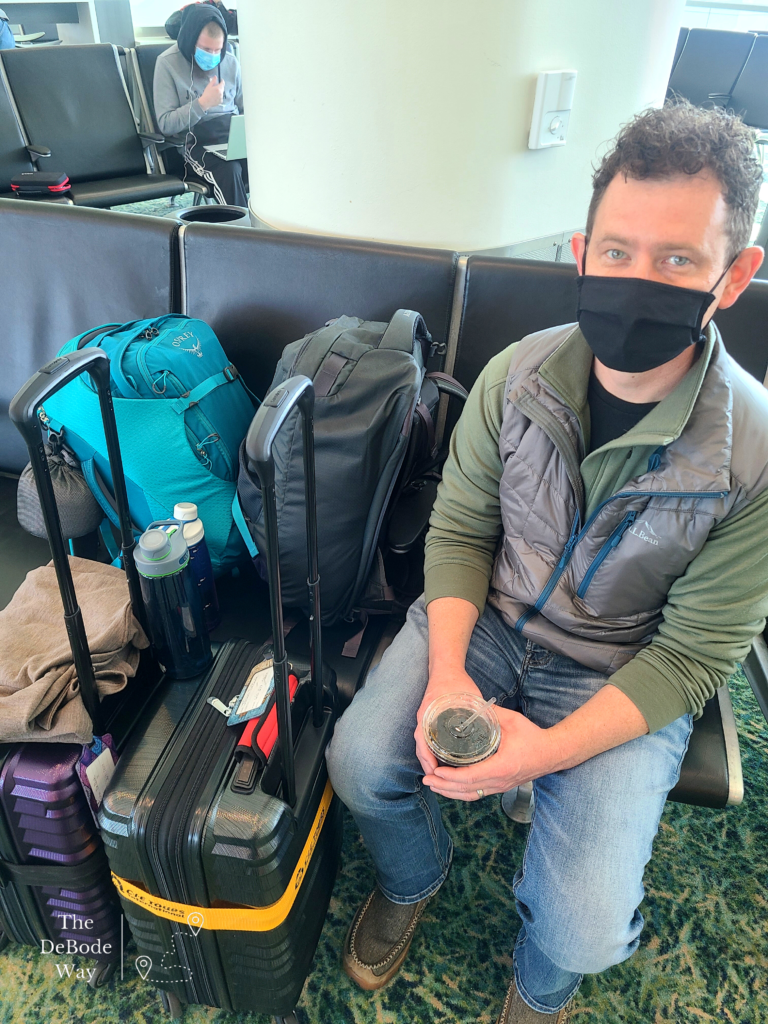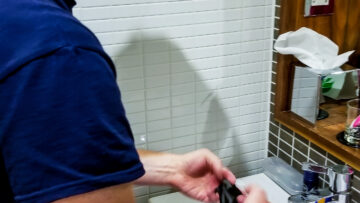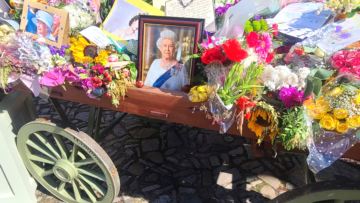It’s no surprise we like to travel as much as we can and that means we’re constantly checking our prep to prevention rate. When we can’t travel and need to stay home for a while, we like living vicariously through our friends and family members who are out and about (keep those pictures coming!). One recent story from some family members reminded us of a few different lessons we’ve learned while abroad that underscore the need to be prepared and stay alert during your travels to prevent being caught off guard.
The short version of the story is some of our relatives had some important things (cell phone, credit cards, etc.) stolen from them while traveling around Europe. While we haven’t had our stuff stolen, we have temporarily lost stuff while away from home and, as you might imagine, it’s not the best of memories on an otherwise great time away.

What’s a person to do while abroad and the victim of theft? A few things we’d recommend:
- Don’t panic. Yes, you’re in a foreign country and are now both the victim of a crime and without the important things you need to continue on your journey and get home. Still, if you’re anything like us, panic means you aren’t staying focused and might make quick decisions that aren’t in your best interests. So, take some deep breaths, find a seat, and try to calm yourself as best you can.
- Confirm what’s missing. We can’t tell you how many times we thought something was stolen only to find we’d just put it in a different pocket from its normal home. Sometimes it’s obvious that something was stolen, like a backpack, but it’s not always obvious what might have been in that backpack. So, make sure you know exactly what’s missing, as that’ll determine what you do from there.
- Technology can be your friend. The last time we had credit cards (and a whole purse) go missing we eventually realized that we could log in to each bank’s app and lock or freeze each card. We were also able to look at the current statement to make sure there weren’t any questionable charges that had been posted in between the cards going missing and us locking the cards. When your card is locked, it can’t be used until you unlock it. That gives you some peace of mind when it comes to your credit cards.
- Call your bank. One of the main reasons we don’t usually carry debit cards while traveling is because there are far fewer protections for them than for credit cards. For example, if a fraudulent charge is posted to your credit card, you can call the bank, dispute the charge and explain what happened, and most of the time you’re not responsible for that charge. Unfortunately, with debit cards, most of the time you’re just out of luck. That said, if you travel with a debit card and it sprouts legs and goes missing, see if you can lock the card using your bank’s app just like with credit cards. If not, call your bank and ask them to freeze the account and/or cancel the card (make sure your card is actually lost before asking them to cancel it, as that usually can’t be reversed if you end up finding the card later).
On a similar note, if you’re planning to take a debit card on your travels to use at an ATM to grab cash (like we do for tips, toilet, etc.), it might be worth adding someone back home to your account just in case something happens. We have a travel debit account specifically for this. While abroad, if your card is lost or stolen and you have someone back home with access to your account, that can help speed things up (e.g., getting you a new card, pulling the cash from your account so a thief can’t access it, etc.). We tend to keep this card separate from all our other cards so it’s less likely to disappear. Fingers crossed. If we find ourselves with no credit cards, it’s our hope that this one will survive and we can transfer money into it from outside accounts for us to get by.
- Lock your phone. Similar to your credit cards, if your mobile phone is among the lost and you’re traveling with a companion or have access to a computer, notify your phone carrier and see if they can remotely lock (or even track) your phone. If you’re like us, we have credit cards loaded onto our phones, so losing a phone also means our cards have been compromised. Act quickly to make it challenging for the thief to access your money.
- Find a US Embassy or Consulate. This really only applies if your passport is lost or stolen, or you’ve been a victim of a serious crime (not to suggest theft isn’t serious). Remember, if you’re outside the US you need a passport to get back home. So, contacting the nearest US Embassy or Consulate will let those officials put a flag on your passport (in case it turns up somewhere) and walk you through the process of getting a replacement so you can get home. While we’re on the topic, it’s usually a good idea to take a picture of the photo page of your passport and keep it with you (either on your phone or a physical photocopy). That copy/picture won’t usually work as an official form of ID, but if your passport gets stolen/lost, that copy/picture can serve as proof that you’re a US citizen. We recommend doing the same with your driver’s license and any other important forms of ID you have with you.
- Technology can also work against you. As our lives become increasingly digital, it doesn’t take much to go missing to cause a big problem for you. For example, many people have smartwatches that are connected to their phones, credit cards, bank accounts, and so on. That means if you lose that watch while traveling abroad, you have a problem. For this reason, we tend not to take connected devices on our adventures. Yes, Jason takes a watch, but it’s a regular analog watch; nothing smart about it other than its looks (wink). We do take our phones, but they never stray more than about 6 inches from our person at any time (other than while showering, obviously). All that’s to say, before you head out on your next adventure, take stock of what you’re taking with you and how much of a liability it could be if it goes missing.
Traveling is supposed to be fun, and for the most part, it is. Still, sometimes adventures don’t always have a happy ending. If you run into problems on your travels, keep a cool head, communicate as much as you can, and above all else, remember that you are still in a foreign country, so don’t forget to look around and take in the views while you’re working to restore normalcy to your life. It’s all going to be ok.





2 Comments
[…] Part 1 of this post series, we talked about things to do if you find yourself a victim of theft while […]
[…] In Part 1 of this post series, we talked about things to do if you find yourself a victim of theft while traveling abroad. In Part 2, we explained our approach to taking credit cards on our adventures as one example of how to prepare for such unfortunate circumstances. In this post, we’ll use another example of how prevention is key to preparing to head out into the wild. […]
Comments are closed.